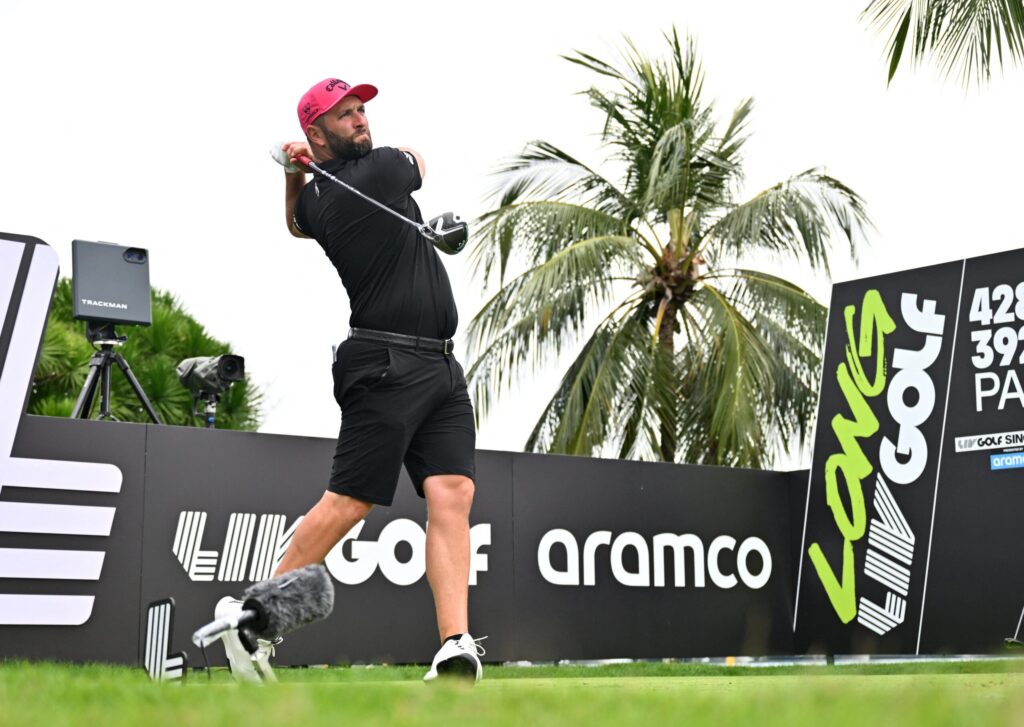The governments of Gulf nations are likely to have mixed feelings about a new sport and soft power ranking.
Qatar, host of the 2022 World Cup, is the top-ranked Gulf state at No 15, followed by Saudi Arabia at 16 and the UAE at 21, according to Skema Publika’s first annual sports soft power report.
The US has secured first place, ahead of the UK in second and France in third.
Skema, an independent think tank affiliated with Skema Business School in Paris, defines soft power as the ability to obtain preferred outcomes by attraction rather than coercion or payment.
The three big Gulf spenders on sport all appear on the list, which constitutes a return on their significant investments.
Saudi Arabia alone has targeted $22 billion of sports spending by 2030.
Last month, its Public Investment Fund and TKO Group Holdings of the US – owner of the UFC and WWE combat sports series – announced a $10 million deal to promote a new boxing league.
This is on top of a previous $100 million cash injection from Saudi Arabia’s SRJ Sports Investments into the Professional Fighters’ League.
Aside from spending billions of dollars attracting football’s global elite to its Pro League, Saudi Arabia has also invested heavily in the world’s richest horse race, snooker, Formula 1, tennis and golf.
The country will host the 10th edition of the Asian Winter Games at its new Alpine-esque resort in Neom in 2029. It all forms part of a decade of high-profile events leading to the 2034 World Cup.
Qatar has become a frequent host of major events. Aside from becoming the first country in the Middle East to host the World Cup, it has also staged the IAAF World Athletics Championships, AFC Asian Cup and Fifa Club World Cup.
The country’s sovereign wealth fund – the Qatar Investment Authority – owns French football giants Paris Saint-Germain. Moves are also being made in rugby: Qatar Airways has agreed a $97 million deal to sponsor the new World Rugby Nations Championship, which will be held in Qatar in 2028.
Toppling the likes of the US and Britain from the top of such rankings remains a big strategic challenge
As for the UAE, Abu Dhabi hosts the final race of the F1 season while the riches of the Dubai World Cup have been a fixture on the horse-racing calendar for four decades. Dubai is also seeking to cement its status with a new sport-focused free zone.
Manchester City, champions of the English Premier League for the past four seasons, are owned by Sheikh Mansour’s Abu Dhabi United Group.
In terms of administrators, Mohammed Ben Sulayem from the UAE is president of F1 governing body the Fédération Internationale de Automobile; Ahmad Al Fahad Al Sabah of Kuwait is a former president of the Olympic Council of Asia and a member of the International Olympic Committee; and Salman bin Ibrahim Al Khalifa of Bahrain is president of the Asian Football Confederation and vice-president of Fifa.
That is not even scratching the surface of the lucrative sports sponsorship deals from the Gulf – from aviation giants Emirates and Etihad to energy major Saudi Aramco.
Middle East officials may therefore be disappointed that their countries have not performed better.
The ranking was compiled over the past 12 months using a methodology involving 60 experts. It assessed 55 countries using 10 criteria: size of domestic sports industry, event staging, membership of governing bodies and social media influence were among them.
Some may see the top three countries as predictable: US leagues such as the NBA are globally pervasive, English football teams such as Liverpool are popular in many countries and France’s staging of the 2024 Olympic Games showcased the country at its best.
However, there are some surprises on the list, Russia’s appearance at No 11 being one of them. In many sports, the country is barred from competition following its full-scale invasion of Ukraine.
The absence of African nations is also striking, especially given the sporting ambitions of Morocco, a semi-finalist at the 2022 World Cup and co-host of the tournament in 2030.
Toppling the likes of the US and Britain from the top of such rankings remains a big strategic challenge. It remains to be seen whether Bahrain – which hosts its annual Grand Prix on April 13 – can elevate its soft power game and whether Kuwait or Oman choose to enter the fray. So far, Kuwait has submitted a bid to host the 2031 AFC Asian Cup after staging the successful Arabian Cup last year while Oman is set to host the 2025 International Optimist Dinghy Association Asian and Oceanian Championship.
Despite these concerns, the race for soft power influence through sport is only set to intensify – and Gulf nations are well positioned to compete.
Simon Chadwick is professor of AfroEurasion sport at Emlyon Business School in Lyon and formerly worked at Skema Business School in Paris
Register now: It’s easy and free
AGBI registered members can access even more of our unique analysis and perspective on business and economics in the Middle East.
Why sign uP
Exclusive weekly email from our editor-in-chief
Personalised weekly emails for your preferred industry sectors
Read and download our insight packed white papers
Access to our mobile app
Prioritised access to live events
Already registered? Sign in
I’ll register later



